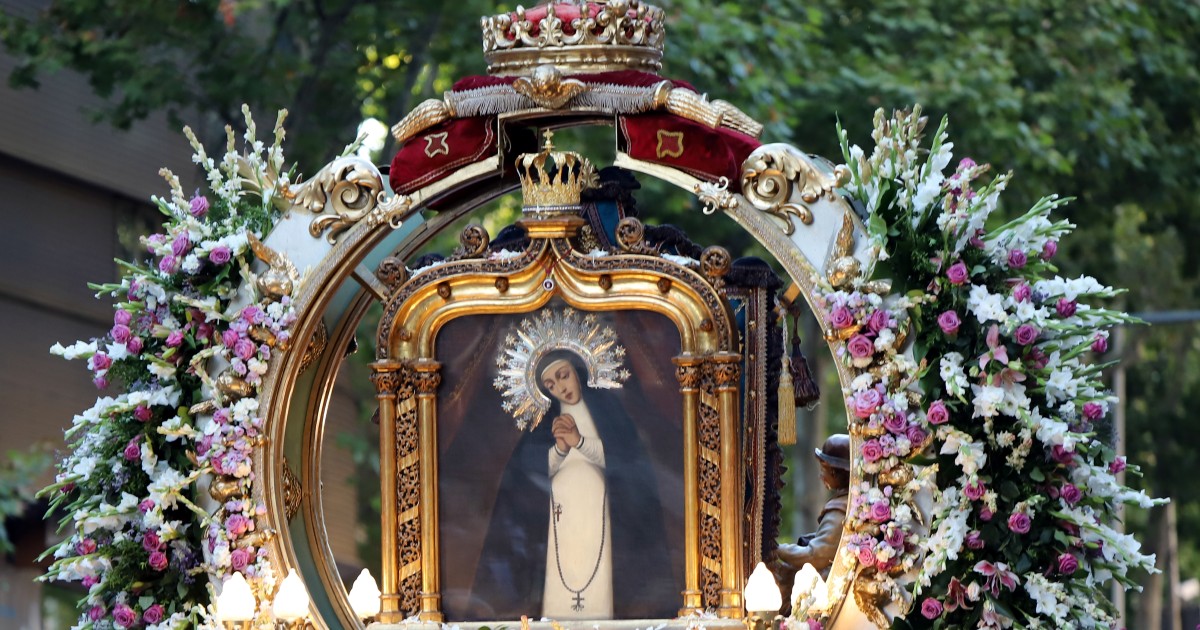Spain’s calendar is peppered with public holidays, known locally as festivos. Many of these days off are rooted in the country’s Catholic traditions, often marking feast days for various saints or other important religious events. Spain’s public holiday on 15th August is a key example of this.
The Feast of the Assumption: the reason for the 15th August bank holiday
The holiday marks the Catholic belief that the Virgin Mary’s body was assumed into heaven at the end of her life on earth and reunited with her soul. This is one of the most important traditional Spanish holidays with a religious foundation and is observed across the entire country. While it’s a national holiday, you will often hear it referred to by its Spanish name, La Asunción de la Virgen.
How is the 15th August holiday celebrated across Spain?
As it’s a national bank holiday, you can expect most businesses, shops and official institutions to be closed for the day. While the holiday is observed everywhere, the way it’s celebrated can vary hugely from one place to another. Many towns and villages across Spain take advantage of this date to hold their own local festivities, which are often in honour of their patron saint.
Common traditions on Assumption Day
On the more traditional side of things, you’ll find religious services and masses are common, as are street processions, where locals carry statues of the Virgin Mary through the town. These religious events are often accompanied by lively local fairs, known as ferias, which bring with them fireworks, open-air concerts and big communal meals. It’s also a day that’s very much about family, with many people using the day off to get together.
Notable regional celebrations in Spain
Some towns have particularly famous celebrations. In Elche, in the province of Alicante, a unique medieval mystery play known as the Misteri d’Elx is performed. The village of La Alberca in Salamanca is also known for its traditional festivities.
In certain regions, the holiday even has its own local name. In Mallorca, for example, 15th August is known as the Mare de Déu d’Agost. On the same day in August, Madrid celebrates its Festividad de la Virgen de la Paloma, while Seville honours its patron saint with the Festividad de la Virgen de los Reyes.
Understanding Spain’s official holidays
To get your head around Spain’s holidays, it helps to know they are split into three different types: national holidays that are the same for everyone, regional holidays that apply only to a specific autonomous community, and local holidays for just a single town or city.
The 15th of August is one of the fixed national holidays, so it’s observed everywhere. Given the mix of national, regional and local days off, it’s always a good idea to check the Spanish national and regional public holidays to see which dates apply to you. It’s also worth noting that the public holiday schedule is separate from the academic calendar, so families might want to check the dates for the school holidays in Spain for 2025 and 2026 as well.
Stay in the know about living in Spain as a foreigner—get our weekly newsletter for the latest travel, legal, and lifestyle news.
